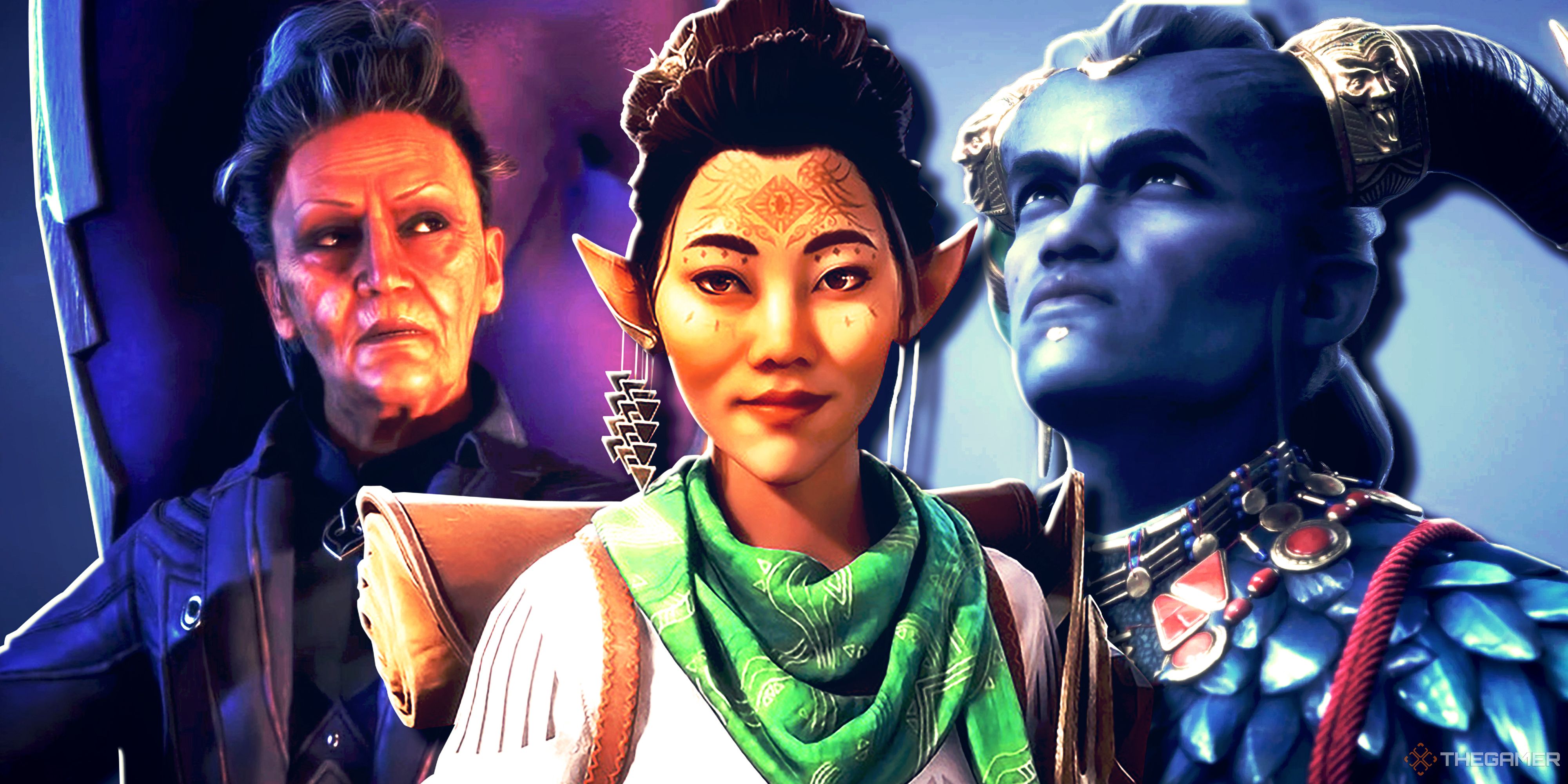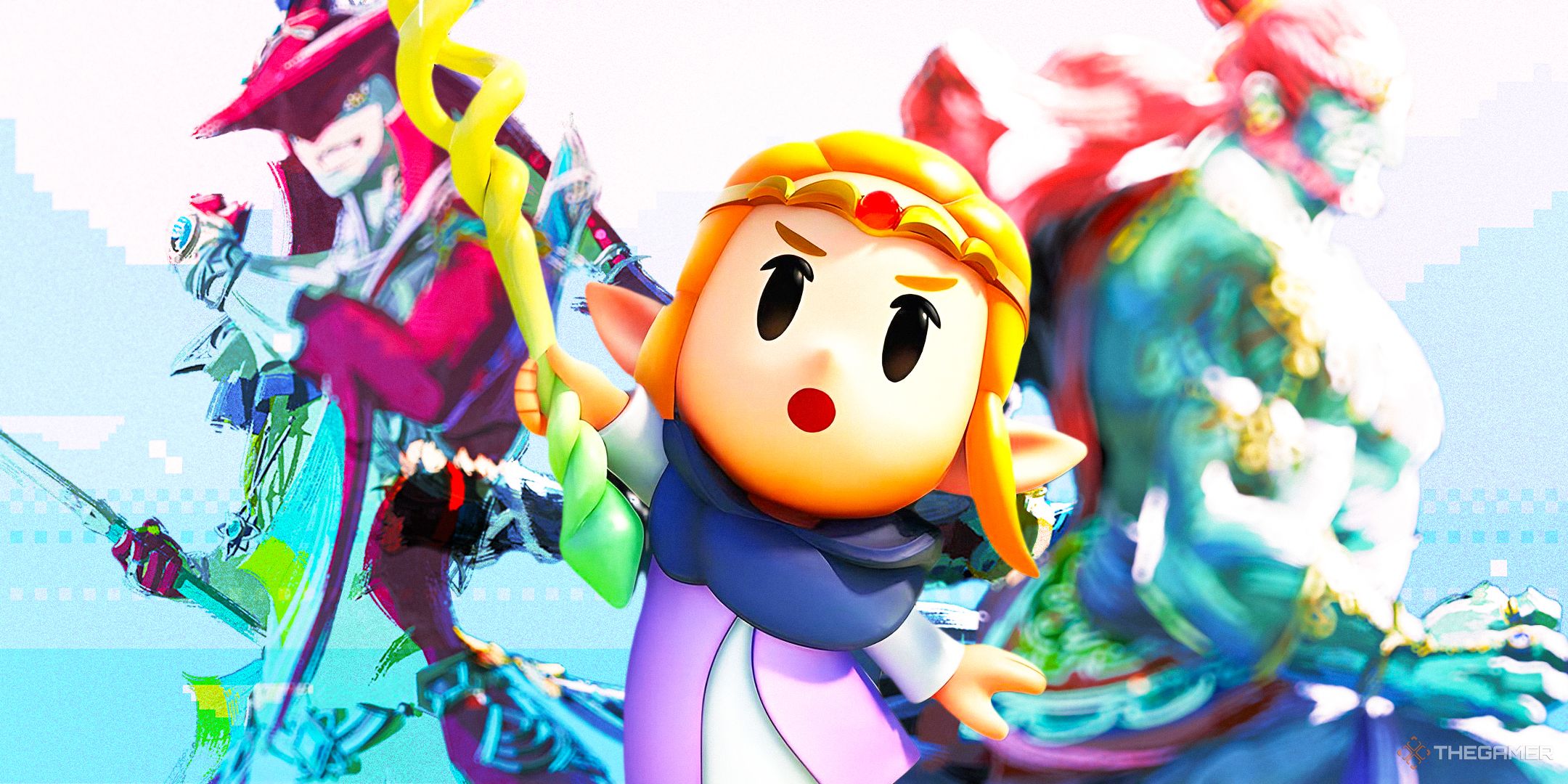A love of romance, gothic elements, and dark fantasy pulled me into the world of Virche Evermore Epic: Lycoris, along with the familiar comfort of Aksys Games and Idea Factory aesthetics. When I sat down to play, I knew what I was in for. My partner, however, was a blank slate and started reading the introductory lines with a goofy voice–until he got to the part about catching a serial killer. He stopped in his tracks and his jaw dropped. For the first time in a while, he was speechless.

Related
Dragon Age: The Veilguard Has Discarded Nuance
Dragon Age: The Veilguard sidesteps uncomfortable topics, and removes moral greyness.
When he composed himself, he stammered, “I thought this was a dating sim.”
It was a dating sim, but also much more than just a frilly romantic tale of a young girl falling in love with a tall anime boy. It’s gritty at times, toying with the idea of revenge spanning multiple lifetimes, and chipping away at the essence of humanity. What happens to a soul when someone dies? Is that person the same if their consciousness is uploaded into an artificial body and allowed to carry on and make new memories?
When you’re cursed to die at 23, you don’t have much time to work on building a legacy. Every day counts, and throwing them away is unthinkable.
As my partner witnessed the narrative unfold, it reminded me of all the other ways that games embrace the darker elements of romance and magic to create truly harrowing experiences. For example, Stardew Valley lets you romance any of the eligible candidates, but if you want to be friendly after a bitter divorce, you’ll need to wipe your ex’s memory. If you had children with your spouse and no longer want them, you can have a witch turn them into doves.
The doves fly off, but dark and watchful birds visit your farm afterwards. Almost as if your children are waiting for something to happen to you.
The world of Virche Evermore takes the familiar tropes of the childhood friend, sworn protector, and several others and reimagines them. Some have chosen to live one short life and retain their soul while others have sacrificed their physical bodies in spite of the curse. Bound to live several lifetimes over when uploading their memories, those who choose rebirth are destined to lose touch with their humanity with every reset.
In my experience, it’s rare for dating sims to so boldly smack the concept of humanity on the head. Even other otome games from Idea Factory merely skirt around what it means to live and love as a human. Amnesia: Memories acted as a thrilling introduction into the limitless bounds of what someone will do to save the person they hold dear–even driving oneself mad from the torture of living a thousand lifetimes only to fail again and again.
Then there are the mobile games that are gacha-based or episodic, leaving short yet sweet tales of romance lingering in your mind until the next game arrives. We don’t need to go into how many I played back in high school, when I had nothing better to do than fall in love with every silver-haired anime boy that said I wasn’t like the other girls. We’ve come a long way since then and it’s for the better.
Heroines are more than just a self-insert for players to project themselves onto. They have personalities and a history that propels them forwards. With Virche Evermore, Ceres is quite literally Death incarnate. Everyone around her dies in tragic accidents, and people shun her out of fear.
Well, everyone except the tall, dark, and mysterious anime boys that all love her.
Side characters are no longer just a bit of flavor. Instead, they take on much larger roles and actively affect the story. Gone are the days where a female protagonist has one other female friend she only sees once or twice when the love interest is busy. While many of Ceres’ friends are male, there are other female characters who have detailed backgrounds and impact the outcome of the story. Even her non romanceable male friends are pillars of support, without doting on or pining after her.
All this to say that romance is alive and well, especially when dealing with the realities of a shortened life and a terrible curse that plagues the country. Otome games can be hit or miss, depending on the writing since they’re all but visual novels at times. But they’ve come a long way since the early days of self-inserts and unrealistic. This is doubly true of the sequels that contain mostly epilogues or side stories that expand upon the original.
Years ago, I never would have played a side story-focused dating sim, nor would I have enjoyed the idea of skipping the first game to go straight to the bonus features. Virche Evermore reads more like the original Beyond: Two Souls narrative experience, jumping around a timeline to give you bits and pieces of the whole picture. I’ll happily sit back with my crochet hooks and watch the story unfold while my partner sits beside me, never sure what will happen next.

Related
Echoes Of Wisdom Is Fine, But Its Sequel Will Be Incredible
The latest Zelda is a good game, but its ideas need more time to cook.















Leave a Reply